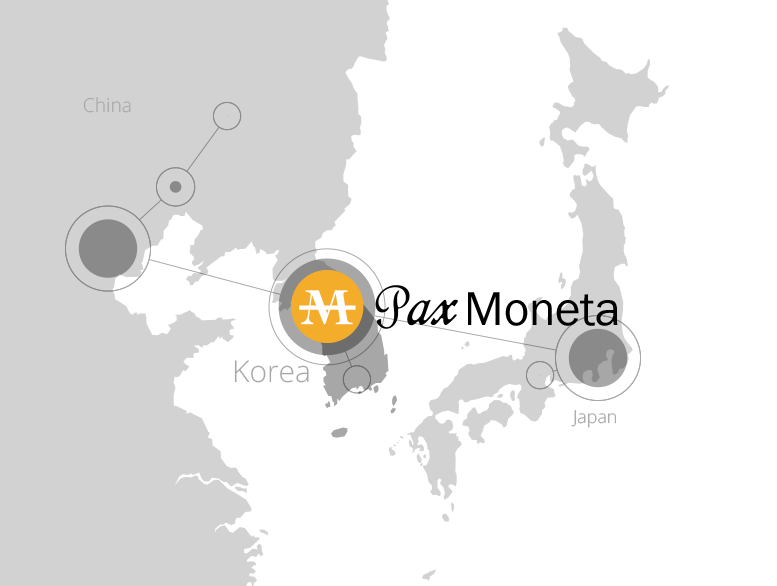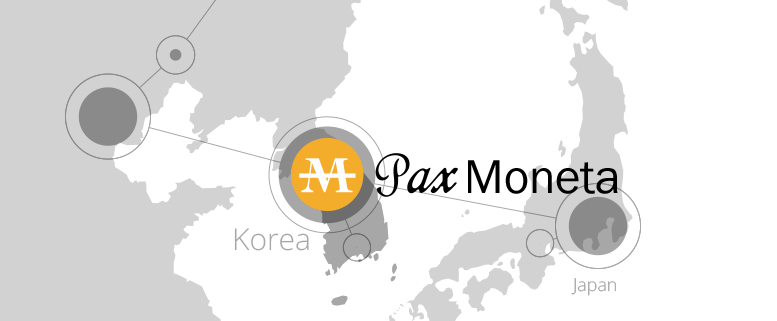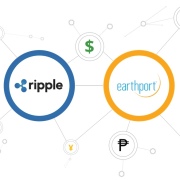Pax Moneta: South Korea’s First Ripple Gateway

As interest in Ripple increases around the world, the ecosystem continues to steadily expand into untapped markets. Recently, Minsung Park, a former lawyer and technology whiz, launched Pax Moneta, South Korea’s first Ripple gateway.
Like many innovators building on the Ripple protocol, Minsung’s history and breadth of experience is rich and unique, having helped to draft laws and write software that spurred the mass adoption of public key infrastructure within his home country.
“My parents wanted me to be a lawyer, so I became a lawyer,” said Minsung, who has helped translate various Ripple documents into Korean, such as the Ripple Primer (Korean). “But my basic instinct was toward science. It was my basic instinct that introduced me to the Internet. In my body and my soul, I am focused on this sort of scientific thinking.”
Minsung sees the potential of Ripple to help better connect his country and its citizens to the broader economic machine, reducing friction between neighboring markets, like China and Japan, and beyond.
Tell us about yourself!
I was born in 1968 so I am 46. Sometimes I forget my age. I majored in law, with a focus on criminal law and information law. At the time, I remember the Internet was just introduced to Korea while I was in graduate school.
The concept quickly piqued my interest so I started digging. “What is the Internet?” I wanted to know. I discovered Mozilla. At the time, I was able to use a phone to connect to the Internet. One of the first things I did was create an Internet group at my university as part of the computer science and law departments, which ran a web server.
I completed my law degree, but because of the Internet, I was, in fact, interested in programming. I ended up working at a government agency, the Korean Information Society Development Institute or KISDI. One of my primary responsibilities was to help formulate a law regarding the Korean Signature Act (1999) based on a public key system or PKI.
This was how I first came across the idea of a cryptocurrency, around 1996 or 1997, but I didn’t yet fully comprehend the meaning of currency or cryptocurrency. As time went on, I continued my research on the idea of the cryptographic key and kept on learning programming, including languages like C and C++. I ended up creating software for law firms working with government agencies, such as the Korea National Police Agency and the Korea Intelligence Services, as well as other organizations using special cryptography with Western countries. Over time, many companies would integrate PKI, both for commercial and government websites in Korea.
I also ran a trading and development company with a focus in futures and options so I had an opportunity to live in the UK for around three years. Through that experience, I saw that the banking systems of Western countries were very developed and there was a good chance we could introduce these systems to Korea.
Three years ago, I returned to Korea, where I continued my study of cryptography, programming, and electronic trading. That’s when I read an article about Bitcoin, which brought back the idea of a cryptocurrency that I came across during my time with KISDI. I ran to the closest bookstore to learn more. During that search, I found Ripple, another way to transfer value digitally.
That’s when I started working on and developing a Ripple gateway, Pax Moneta, which is the first Ripple gateway in South Korea. Pax Moneta means “peace of money,” a play on words, originating from the term “Pax Romana” or “Pax America”
That’s quite a journey! What ended up attracting you to Ripple?
The reason why I created a Ripple company is simply because the technology is just great. It makes sense. In a way, Bitcoin is about replacing currency like the U.S. Dollar. On the other hand, Ripple is complementary and can help exchange any currency, KRW, CNY, GBP, or USD. That means Ripple can work with governments instead of against them. Personally, I will still use Bitcoin, but Ripple can be used as a method to help exchange value quickly between many countries.
So I have a lot of belief in Ripple, which I feel is supported by my background. I majored in law, but my basic instinct was always based on natural sciences. That’s why I love Ripple and I’m lucky because I think I can understand both areas.
What sort of challenges did you face?
I tried to build a rippled server. It was very difficult, but ultimately, I succeeded. Then I had to figure out how to use rippled, ripple-lib, and gatewayd.
One issue is that Node.js and Angular.js were very new to Koreans. Most developers in Korea are using Java. I couldn’t find a book in Korean for Angular.js so this was a challenge, but I was able to find English resources on the Internet. It was often difficult to sleep. If I’m interested in something, I cannot see anything but this single passion.
After a bit of studying, I was able to better understand gatewayd and ripple-lib. A few months ago, my gateway was nearly ready so I contacted the International Ripple Business Association or IRBA.
Congratulations, that’s a huge accomplishment! Is the Ripple technology being embraced locally?
There have been some difficulties, primarily because most Koreans don’t know the existence of Ripple. We now have a gateway, but many Koreans don’t understand what a gateway is. So one thing we have to do is create a more intuitive Ripple client on top of gatewayd for Koreans to use.
Tell us about your team!
At the moment, we have four people to cover programming, design, and marketing, but we are actively recruiting. We’re still small. We’re a startup.
Since one of the main challenges for Pax Moneta is Ripple mindshare in Korea, do you have an explicit marketing strategy?
As you know, Korea is located between China and Japan. Traditionally, KRW and USD has been essential to the Korean economy. I want to help Korea become a bridge between the USA and China. So in the long view, Pax Moneta should focus on these two countries.
There are many Koreans who own factories in China and there are also many Chinese people who want to come to Korea so there is high demand for exchange between KRW and CNY.
What’s the regulatory climate surrounding these technologies like in Korea?
There was a recent government petition on virtual currencies. In general, the view seems to be that virtual currencies are convenient, like Ripple, which is fast and operates within the law, but the price is not stable. So at the moment, the Bank of Korea does not have any explicit plan to support it.
As you may know, in Korea, the government plays a significant role in supporting companies so the issues of regulation are very important. But I believe it will be similar to the adoption of the Internet. Today, the Internet is used by the Korean government. In the future, I think Ripple will be used, too. When my son and my grandchildren become parents, they will use virtual currencies.
The Korean government does block certain things, but in general, they want to support innovation, like with AG Pay and Kakao Pay. We’re entering a new era and I think there will be many chances in front of us if we are prepared for the future.
Any final thoughts?
Yes, just this: “If all roads lead to Rome, then all values lead to Ripple.”





Hinterlasse einen Kommentar
An der Diskussion beteiligen?Hinterlasse uns deinen Kommentar!